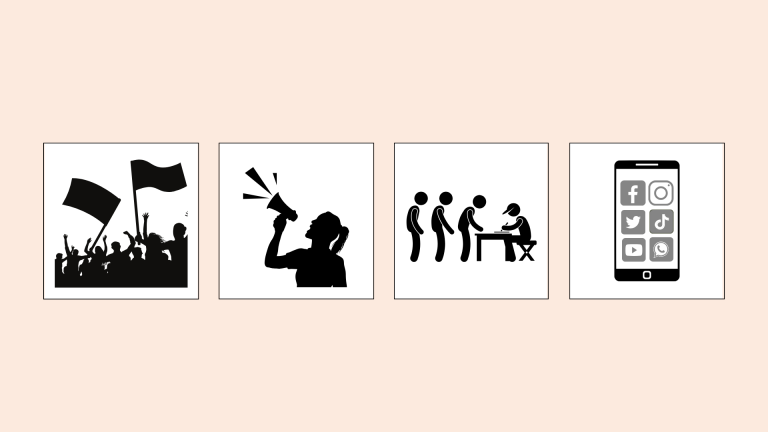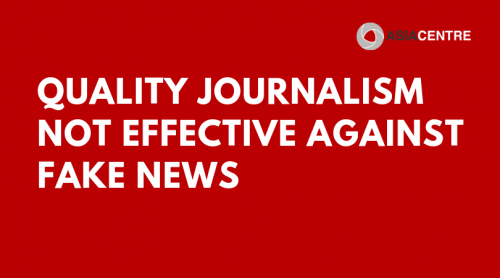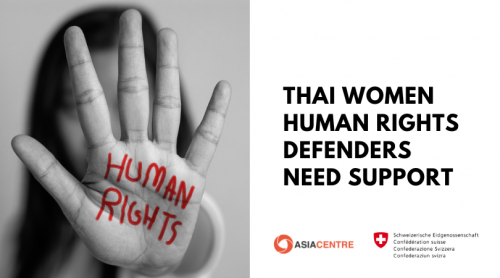
Civic space, the area where citizens come together to voice their concerns and design their political destinies, has been in contestation. Asia has witnessed a struggle between authoritarian regimes on the one hand and democratic actors on the other. The right to peaceful assembly and association serves as a cornerstone of this struggle for democracy.
At the heart of this issue lies the obligation of states to create an open arena for citizens to voice their demands. Protected under Article 20 of the Universal Declaration of Human Rights, the freedom of peaceful assembly and association is a fundamental pillar of democracy. This freedom allows people to gather, rally, protest, and shape the path toward democratic governance. Governments have a responsibility to facilitate these activities, protecting citizens’ rights and ensuring that peaceful protests are met with measured responses.
Even before the COVID-19 pandemic, many regimes in Asia were already reluctant to promote civic space, fearing that it might empower democratic forces. The onset of the pandemic brought about a troubling shift in behaviour. Under the guise of preventing virus spread, governments justified curtailing these freedoms, disregarding international standards that stipulate restrictions must have legitimate grounds and must not result in breaches of international law.
A striking pattern emerged across various Asian countries.
In India, the BJP government used COVID-19 laws and regulations against those who challenged its Hindu nationalist scheme. Opposition to controversial religion-based discriminatory legislation was clamped down. Arrested protesters were charged with rioting. The government deprived them of the right to basic legal aid from their lawyers, isolating the protestors from their lawyers by means of movement control.
Meanwhile, in West Papua, Indonesia, protests against the extension of the discriminatory Special Autonomy status were met with threats of legal consequences. The extension demonstrated the Indonesian government’s disregard for the Papuans’ right to self-determination. Security forces shut down demonstrations and arrested many individuals, citing the outbreak of the virus as the rationale. This has led to further marginalisation of the Papuans.
Even as the pandemic receded, these regimes continued to exploit the same justifications to suppress democratic activities.
In Thailand, the government responded to calls for reform with judicial harassment, using pandemic restrictions as a tool to cripple protests. Harsh forces such as rubber bullets, tear gas and chemical substances were rolled out. This eventually caused the movement to die down.
Thai activists were charged even after the pandemic was under control as the government dragged on the emergency situation for more than two and a half years. Meanwhile, those who were previously charged for violating movement restrictions have begun to receive sentences.
In China, it was until as late as December 2022 that the CCP hinged on the exceptional power under the auspices of the outbreak. Many took to the streets to show opposition to not just the years-long lockdown but also the CCP’s rule. As footage shows, the CCP used violence to disburse what it labelled as “hostile forces”. This showcased the durability of repressive measures.
What became evident is that the pandemic has offered authoritarian regimes an opportunity to tighten their grip on civic space, thereby limiting avenues for civil society-led political action.
As we navigate the post-pandemic landscape, the imperative to safeguard democratic principles is paramount, as governments leveraged the pandemic as an excuse to suppress freedoms. Civil society organisations, human rights advocates, and international bodies should closely monitor the situation, ensuring that governments adhere to international standards and respect citizens’ rights.
Leaders themselves must recognise that fostering a civic space fuels the healthy functioning of democracy. Democratic governance propers when citizens can engage in open dialogue, voice their concerns, and participate in shaping the future of their nation.



